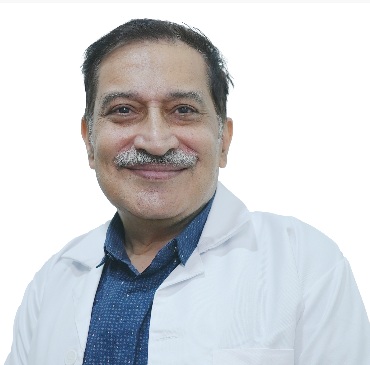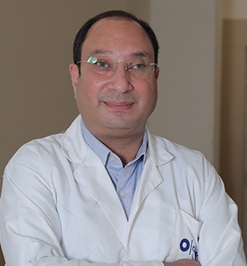Post Chikungunya Joint Pain Treatment Best Solutions

Quick Summary
- Chikungunya is a virus spread by an infected mosquito bite.
- Symptoms of chikungunya include fever, joint pain, fatigue, headache, nausea, and redness.
- Treatment for chikungunya includes rest, pain relievers, and fluids.
The much-talked-about virus, chikungunya, is known to be spread by an infected mosquito biting people. Stiffness and joint pain after chikungunya can persist for up to 3 years in cases where relapse is evident. Chikungunya symptoms often develop 3 to 7 days after first being bitten. They include fever and joint discomfort but can also have other sensations like chronic fatigue, headache, nausea, or redness. Since joint pain is one of the major effects of chikungunya, people tend to find an effective post-chikungunya joint pain treatment to help with the pain.
The most common symptoms of chikungunya that come in the way of people's daily routines include fever, severe rashes, and arthritis. The fever usually persists for 3-5 days before it subsides. Not all patients experience rashes, but a majority of them do. To combat these excruciating impacts of the disease, one must opt for the best treatments that are certain to bring relief.
Download our App today to plan your surgery seamlessly and stress-free!
Effective Chikungunya Treatment for Joint Pains That One Can Follow
There are quite a few post-chikungunya joint treatment home remedies to get rid of joint pain after chikungunya to some extent. These can help bring down the body temperature and provide ease to the consistent body aches.
A. Regular Joint Exercises
Exercising is the best and most effective solution to joint pain. It is important to keep the patient's joints active, so they don't get rusty, which can make them feel weaker. It is advised to do some movement after the person wakes up to get rid of the stiffness. One can start with some simple exercises like stretching the arms and legs to promote the movement of the joints at least twice a day. Here are some of the most effective exercises that can help cure your joint pain after chikungunya:
- Bring both your feet close and try standing on your toes. Hold the position for a few minutes and then release.
- Swiftly move all your joints every morning to reduce their stiffness.
- Sit on a chair and raise one leg for close to 10 seconds before bringing it down. Repeat the same for the other leg to provide much-needed movement to your joints.
- Slowly twist the body left and right a few times to improve your overall flexibility.
B. Healthy Diet
Eating proper food can ensure a higher level of energy since joint pains and the after chikungunya joint pain treatment can make the patient feel weak and dull. Eating good, nutritious food while keeping junk foods at bay is one of the best post chikungunya joint pain treatments. Opt for more leafy vegetables and add turmeric and garlic to the diet to enhance the body's metabolism.
C. Physiotherapy
Joint pain after chikungunya can often lead to increased lower back and knee stiffness. This is why getting proper guidance from an experienced physiotherapist is important. While patients can choose to do the exercises at home, opting for dedicated physiotherapy will ensure complete body ache recovery with a special focus on the areas that pain more.
One of the biggest advantages of choosing physiotherapy to treat chikungunya joint pain is the consistent exercising routine that the patient dwells.
D. Effective Painkillers
It is obvious and goes without saying that painkillers help a lot with subsidising the pain and hence can bring relief to the joint pains as well. This is a crucial aspect of the post-chikungunya joint pain treatment and can help to a large extent when the pain is just unbearable. Consult with your doctor and ask for an effective painkiller that does not have as many side effects.


Foods That Will Help With Chikungunya Treatment For Joint Pains
One of the main reasons why people can't get rid of joint pain fast enough is because they do not pay enough attention to their diet. There are always some superfoods that can help with joint pain after chikungunya.
Some food items that can help patients recover faster are coconut water, leafy vegetables, papaya leaf extracts, and foods rich in vitamin C, like oranges, kiwis, and guavas.
However, it is vital to note that if one wants to carry out the post-chikungunya joint pain treatment smoothly, sweets, oil, and spicy foods must be avoided for some time. Reduce the intake of junk and fast food as much as possible, helping the body to recover easily. The last thing a patient wants to do is have an upset stomach during the after-chikungunya joint pain treatment, which can make the situation even worse.
| Food to Consume | Food to Avoid |
|
Leafy Vegetables Like Spinach, Cabbage, and Kale |
Oily or Spicy Food |
|
Vitamin C-Rich Food like oranges and lemon |
Non-Vegetarian Food Like Chicken and Mutton |
| Fresh, Home-Made Soups Like Carrot and Tomato | Junk or Sugary Food like pizza, burgers |
| Hot Herbal Teas With Fennel and Cumin Seeds | Vitamin C-Rich Food like orange and lemon |
| Omega-3, Fatty Acid-Rich foods | Alcohol |
Wrapping Up
Chikungunya joint pain can be excruciating at times, and it is essential to understand and implement effective treatments to reduce the discomfort. After chikungunya joint pain treatment, the patients should continue with their healthy diet and keep their bodies hydrated to avoid the chances of possible weakness.
HexaHealth can help you with the much-needed guidance for chikungunya joint pain treatments. Consult with the experts via our patient-first platform and get the best solution for your pains.
Download our App today to plan your surgery seamlessly and stress-free!
Frequently Asked Questions
How do I stop joint pain after chikungunya?
You can minimise the pain by doing simple yet effective exercises every day. You can also massage your joints with coconut oil to help the surrounding muscles relax and provide comfort.
How long does the joint pain last after chikungunya?
Joint pain after chikungunya can last for up to a few weeks, depending on your body. In some severe cases, the pain can take months and requires dedicated treatments to bring relief.
How do you treat chikungunya pain?
You can cure the pain with an effective post-chikungunya joint pain treatment. You must drink lots of fluids to keep yourself hydrated, take painkillers if you have a high fever, and follow a healthy diet.
Is chikungunya arthritis curable?
Yes, chikungunya arthritis is curable. The fever subsides fast, but the joint pain may remain for some time before it completely disappears.
Which oil is best for chikungunya?
Castor and coconut oil have been proven to be quite effective with chikungunya. When mixed with camphor and garlic, it significantly helps ease joint pains.
What is the reason for the joint pain in chikungunya?
The response of the body's immune system to the viral infection is what causes joint discomfort. This can also arise due to weakness in the body.
Which fruit is good for chikungunya?
Fruits like papaya, apples and pears are very good and effective for chikungunya. One can also have fruits that are rich in vitamin C, including oranges.
Which Ayurvedic medicine is best for chikungunya?
Sacred basil leaves or tulsi is a very effective ayurvedic chikungunya medicine and helps reduce the fever.
Is massage good for chikungunya?
Massages can be very helpful with joint pains. You will instantly feel better if you use coconut oil to massage your joints gently.
What should we eat after chikungunya?
After chikungunya, one should eat items like coconut water, soups, barley and herbs that are rich energy sources.
Is coconut water good for chikungunya?
If you have chikungunya fever, coconut water can help remove toxins from the body. It also renews and preserves your body's water levels.
Can we do exercise after chikungunya?
You might not want to do intense workouts, but light movements and exercises like stretching can help. Manual and aquatic physical therapy also provides relief to the pain.
Can we take a bath in chikungunya?
Taking showers or using clothes moistened with room-temperature water can relieve fever in both children and adults. However, one must consult with the doctor to check the severity of chikungunya.
How long does it take to cure chikungunya?
You can recover from the fever and other symptoms within one to two weeks, but the joint pains tend to remain for a long time.
Can papaya leaves cure chikungunya?
The papaya leaf is also called the "Ram Ban" of chikungunya. Papaya leaves help deal with the massive fall in the blood platelet count.
Is giloy good for chikungunya?
Yes, giloy is very effective for joint pain after chikungunya. You can mix a few drops of it in water and consume it daily to treat your fever as well.
Is physiotherapy good for chikungunya?
Physiotherapy is an excellent way to regain your joints' strength and improve. It can help reduce your overall pain and free your stiff joints.
What are the long-term effects of chikungunya?
The only long-term effect of chikungunya tends to be chronic joint pain and morning joint stiffness, which can be reduced to some extent with an effective post-chikungunya joint pain treatment.
Which medicines are used for treating chikungunya?
There isn't a specialised antiviral medication for chikungunya, although many treatments and vaccines are being explored. One must rest well and stay hydrated to treat chikungunya faster, alongside taking painkillers.
What are the 3 symptoms of chikungunya fever?
Fever and joint discomfort are the main symptoms. Other signs include a rash, headache, muscular soreness, or joint swelling.
Can we drink milk in chikungunya?
Yes, you can drink cow milk during chikungunya since it provides relief from the symptoms and fills you with energy.
Does chikungunya require hospitalisation?
Most healthy people with this virus do not need to be hospitalised. However, the pain might be so intense during illness that patients are forced to stay in bed at home for several weeks.
Last Updated on: 9 July 2024
Reviewer

Dr. Aman Priya Khanna
MBBS, DNB General Surgery, FMAS, FIAGES, FALS Bariatric, MNAMS General Surgery
13 Years Experience
Dr Aman Priya Khanna is a highly experienced and National Board–Certified Laparoscopic, GI, and Bariatric Surgeon with over 13 years of clinical expertise.
He is widely regarded as one of the best bariatric surgeons in Ahmedabad, ...View More
Author

An enthusiastic writer with an eye for details and medical correctness. An avid reviewer and publisher. She emphasises authentic information and creates value for the readers. Earlier, she was involved in making ...View More
Expert Doctors (10)
NABH Accredited Hospitals (4)
Latest Health Articles
Related Treatments



















 Open In App
Open In App